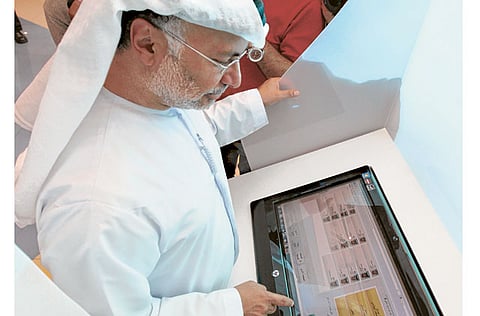Build bridges with public opinion
FNC must function as a link between people and leadership to improve governance and welfare

There is no doubt that the Federal National Council (FNC) preserves its significance and constitutional standing despite all that has been written and said about it. The FNC has captured the attention of the local and foreign political elite, researchers and scholars in the legal and political context, inside the UAE and abroad.
This attention comes in the form of discussions, both publicised and otherwise, in which the council's purpose is debated and projects are proposed for its development.
From these discussions, there seems to be a clear disagreement among theorists and scholars regarding the FNC's purpose and duties, or the powers it has to carry out its parliamentary responsibilities, considering that it is the sole Council that is supposed to learn about people's needs and demands, and to represent the people before the government and leadership of the country and convey these needs and demands. Some believe that the FNC should handle the legislative authority, or — at least — participate in the political issues, with the other authorities in society.
There is great concurrence that the FNC was able to utilise the momentum of the federation during the first and second decade of its establishment. This enabled it to achieve important missions. It endeavoured to use some of its parliamentary powers to the maximum in accordance with its regulations.
The FNC was able to work wisely within these regulations to interact with the leadership, which supported the Council. The FNC was also very close to amending its regulations and expanding its powers and authority under the political umbrella of the country's leadership. It was also possible to make some constitutional amendments to create a balance between authorities in the community.
This step would have transformed the Council from being a consultative establishment to a partner in drawing the future of one, united country.
Drawbacks
While, the drive to unify and enhance federal entities has slowed down, and with the FNC's silence and withdrawn attitude in recent years, the administrative authority made some amendments that reduced the power of the FNC, leaving it as a council with no major role. The FNC has projected outdated affiliations to the administrative authority. Thus, it lost the ability to detect, direct and correct the misconducts of the administration.
For instance, the FNC ignored the discrepancy in the level of service offered in different parts of the country, which led to a continuous migration in the search of better prospects. This, especially as basic services in some locations and villages have declined. Many UAE workers have also moved from federal establishments to local bodies.
The FNC did not address the major concerns people of the UAE have, like the population's structure, crime, national security, foreign policy and social affairs. Its discussions on matters such as education, health, human rights and local environment was well below people's expectations. Unfortunately, the FNC's performance has led to some calls for abolishing it and transferring its financial responsibilities to local councils. Nevertheless, most agree that the efforts to develop the council and improve its performance have not lived up to citizens' expectations.
These efforts — deliberately — have not touched upon the subject and context of parliament's role, and stopped at a few formalities that do not make a difference, such as electing half of the council's members from a limited number of nationals. And, later on, increasing the number of elected nationals threefold.
Therefore, nationals seemed reluctant to participate in what was called a reform of the FNC. But others, who are in search of a social or political facade in the community, are showing their faces on the stage. Some are avoiding it, considering that participating in the "show" means endorsing an act that did not emanate from public demand.
Knowing the real weight of the FNC, it is evident that some UAE nationals are ignoring most of the activities that the concerned ministry is engaging in an act called developments. This is demonstrated by the lack of concern among people about what is written or said about it.
The main demand of the UAE citizens is that the FNC should practice its preliminary responsibility, Yet, most of the people believe that if this council and the authorities concerned want to build bridges with public opinion, or reflect the interest of the people, it must start caring about their needs and regain its status within the parameters in a way where its committees, chairman and members become a part of the mission of improving the life of citizens, and securing equal and good services.
This is all the more important in the context of services that touch their daily lives such as water, electricity, sewage systems, education and health all over the country.
Dr Khalifa Rashid Al Sha'ali is an Emirati writer who specialises in legal affairs.


